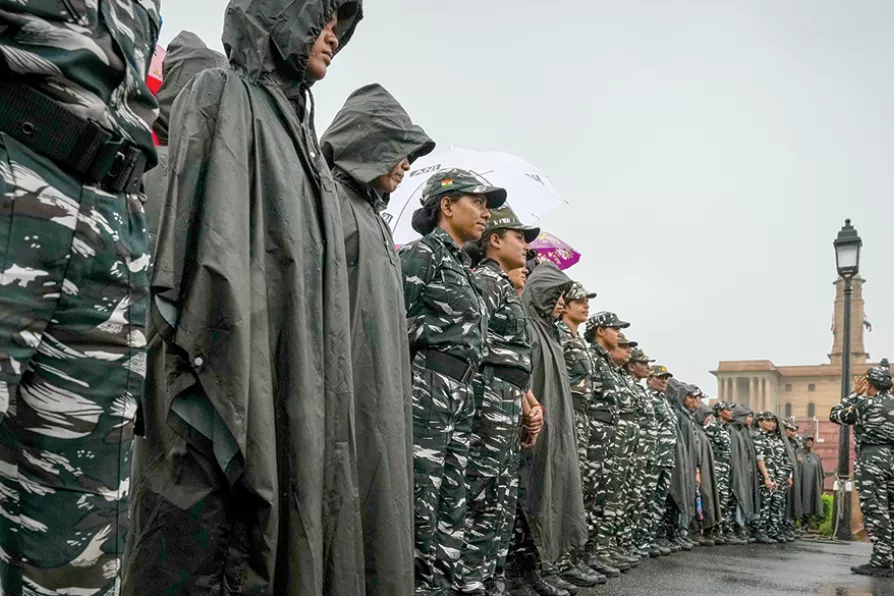Israel’s recognition of Somaliland has little to do with self-determination and far more to do with strategy, offering Israel a potential military foothold near Yemen, says JE ROSENBERG

 INTIMIDATION: Indian paramilitaries barricade a protest march by parliamentarians from the opposition Congress Party in New Delhi, last week
INTIMIDATION: Indian paramilitaries barricade a protest march by parliamentarians from the opposition Congress Party in New Delhi, last week
TILL recently, when commemorating the significant anniversaries of independence, we could cite the parliamentary democratic system as one of the major achievements of independent India.
The adoption of a republican constitution in 1950 provided the scope for people’s participation and a voice in politics which reflected the aspirations of the Indian people in their struggle for national independence.
Despite the narrow basis and the class constraints on the democratic system in a developing capitalist society, it was creditable how parliamentary democracy could retain its vitality for over six decades.

Following the resignation of Nepali Prime Minister KP Oli amid mass youth-driven protests, different narratives have circulated which simplify and misrepresent the complexities and reality on the ground in Nepal at the roots of this crisis, argue VIJAY PRASHAD and ATUL CHANDRA

Indian communist leader MA Baby considers the chilling escalation of violence against minorities and increasing impunity for their attackers under the Modi regime












